Archive for December 2016
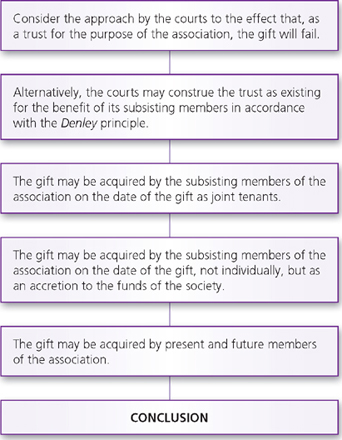
11 Private purpose trusts AIMS AND OBJECTIVES By the end of this chapter you should be able to: ■ understand the rationale behind the general rule of non-enforceability of private purpose trusts ■ comprehend the rule against perpetuities ■ recognise the exceptions to the Astor principle ■ define the Denley . . . Read more
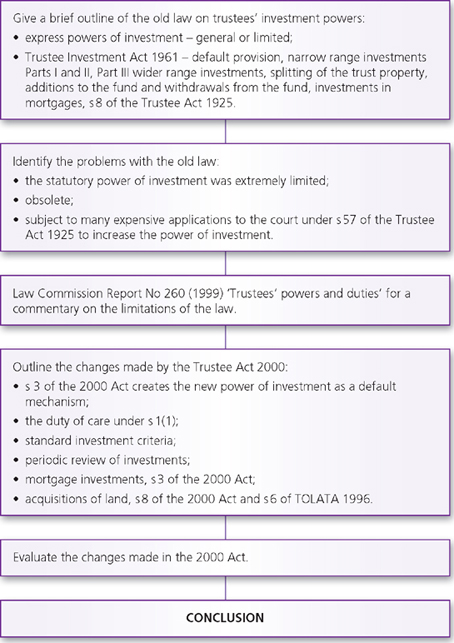
14 Duties and powers of trustees AIMS AND OBJECTIVES By the end of this chapter you should be able to: ■ identify the trustees’ fiduciary duties including the duty to avoid making profits from the trust ■ define the standard of care imposed on trustees in the execution of their . . . Read more

5 Formalities for the creation of express trusts AIMS AND OBJECTIVES By the end of this chapter you should be able to: ■ ascertain the rationale governing the statutory formalities referred to in this chapter ■ recognise when the formalities are relevant in a problem question ■ analyse and apply . . . Read more
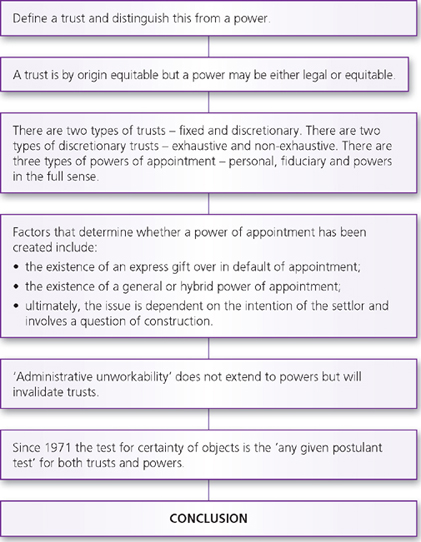
6 Discretionary trusts AIMS AND OBJECTIVES By the end of this chapter you should be able to: ■ define a discretionary trust, distinguish it from a fixed trust and classify discretionary trusts ■ contrast a discretionary trust with a power of appointment ■ list the duties imposed on fiduciaries ■ . . . Read more
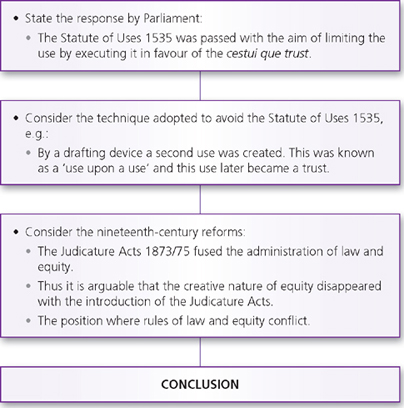
1 Historical outlines of equity AIMS AND OBJECTIVES By the end of this chapter you should be able to: ■ understand the shades of meaning of the expression ‘equity’ as used over the centuries ■ comprehend the historical development and contribution of equity to English law ■ appreciate the nineteenth-century . . . Read more
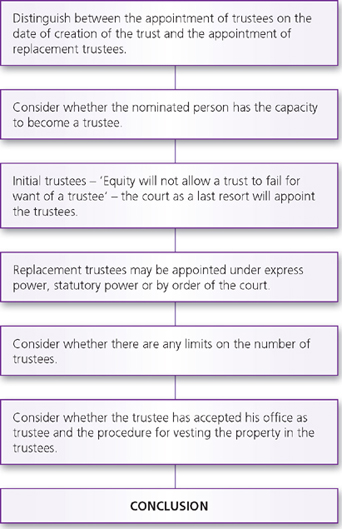
13 Appointment, retirement and removal of trustees AIMS AND OBJECTIVES By the end of this chapter you should be able to: ■ identify when and how an appointment of trustees may be made ■ understand the circumstances as to when a trustee may retire from the trust ■ appreciate the . . . Read more
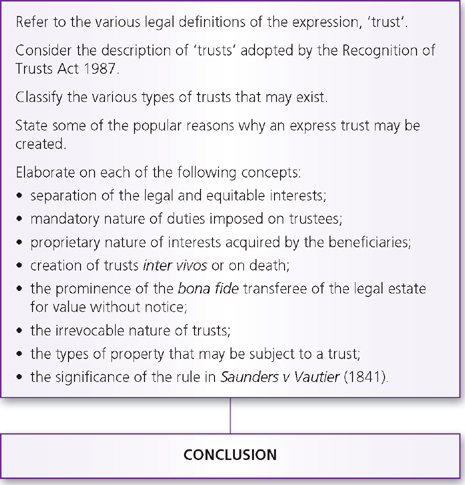
2 Introduction to trusts AIMS AND OBJECTIVES By the end of this chapter you should be able to: ■ appreciate the main legal definitions of trusts ■ identify the essential characteristics of trusts ■ grasp the various types of trusts that exist ■ comprehend some of the more popular reasons . . . Read more
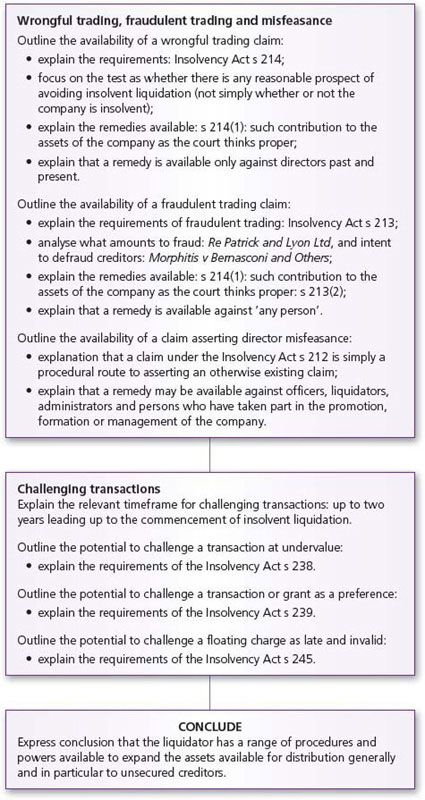
16 Winding up and dissolution of a company AIMS AND OBJECTIVES After reading this chapter you should be able to: Identify the different types of winding up Decide whether a document creates a fixed or floating charge Determine the order of priority of charges against the same property Appreciate the . . . Read more

8 Capital maintenance and distributions AIMS AND OBJECTIVES After reading this chapter you should be able to: Understand how share capital can protect a creditor and why its relevance declines over the life of a company Explain the scope of ‘capital maintenance’ laws State the minimum share capital requirements Appreciate . . . Read more

4 Company formation and linked issues AIMS AND OBJECTIVES After reading this chapter you should be able to: Register a company Understand the importance and usefulness of company registration numbers Decide whether a proposed name for a company will be accepted by the registrar of companies Understand when a company . . . Read more







